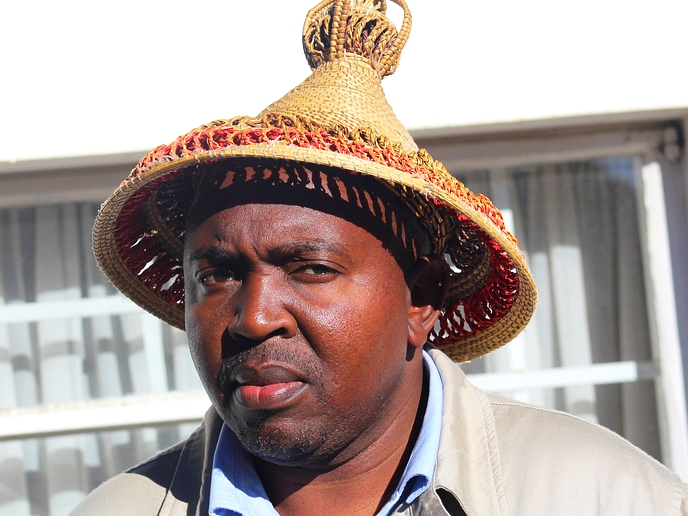Something spectacular happened in our country not so long ago. We now unapologetically have an economic indigenization agenda. Parliament passed a piece of legislation called the Business Licensing and Registration Regulations of 2020. According to a report in a local newspaper titled, “New business licensing regulations for Lesotho”, the genesis of these regulations was a motion tabled by Movement for Economic Change (MEC) Deputy leader, Mrs Tšepang Tšita-Mosena.
comments
Nov. 6, 2020
Mothepa Ndumo
4 min read
Growing The Entrepreneurial Acumen Of Basotho

Mothepa Ndumo
"Lazy hands make for poverty, but diligent hands bring wealth."
From a collective psyche point of view, these types of moves require a resoluteness that has hitherto been missing from Lesotho lawmakers when it comes to indigenous ownership of the economy. Act with conviction and lay down the gauntlet if you want to go anywhere far especially when it comes to issues of economic self-determination.
If there is one country on this planet that would qualify for one of the top spots on The World’s Most Shamelessly Economically Exploited Country by Foreigners, Lesotho would be a serious contender. Many of our past political leaders, living and deceased, sold us down the drain to said shameless economic exploiters hence my call for the institution of a crime called Economic Treason in our jurisdiction to hold such people accountable.
Meantime we celebrate what appears, on the face of it, a move in the right direction. One of the reasons why the jury is still out is because the entrepreneurial acumen of Basotho is not what it should be if we are to build what I call Emporium Economies of Scale. It is now arguably agreed across all sectors of Lesotho society that entrepreneurship presents the best solution to solving the massive unemployment in the country. I am particularly concerned about youth unemployment due, partly, to its toxic interior impact on the collective youth psyche. It is wholly unfair to expect young people to deal with some of the messes that we find ourselves in due to economically treasonous misrule.
Youth entrepreneurship is, according to Office of the United Nations Secretary-General Youth Envoy, “now being reinvented to entice not just urban young people but rural youths as well.”
Enjoy our daily newsletter from today
Access exclusive newsletters, along with previews of new media releases.
All stakeholders in the economy, including the private sector, must combine areas of expertise to impart knowledge, skills, experience, and structured guidance to indigenous entrepreneurs through various innovative and far-reaching national initiatives. What is missing from the mix? How do we address the situation? Our ecosystem should include a carefully calibrated mix created to facilitate entrepreneurship by providing loans and grants, skills development, mentorship, networking contacts, and markets (domestic and external) for young entrepreneurs. Without a doubt, the policy and institutional framework exist but anecdotal evidence suggests that indigenous enterprises still have a very low survival rate.
In 2015, Madzhivandila and Dlamini, writing from a South African context, observed that despite a theoretically enabling environment for burgeoning Black-owned enterprises to start flourishing, most of these enterprises do not progress beyond the start-up phase. The authors were of the view that a culture of entrepreneurship and entrepreneurial education, amongst other interventions, was necessary to ensure that Black-owned enterprises grow and create employment opportunities.
The fact of the matter is, even though Basotho are becoming increasingly involved in entrepreneurial activity, their contribution has generally not been nurtured.
Very unrealistic images of entrepreneurship are promoted in the mass media, there is very little social capital to go around, economic collaboration still does not characterize the way we do business as Basotho in general, monetizing ideas is still problematic and even more importantly, accessing mentorship and coaching programs is still not widespread because it involves costs.
The entrepreneurs that I speak to and mentor, they have these ideas that they haven’t researched, they haven’t tried to implement them on a small scale and see whether they’re viable or whether there’s a market for their product. They take these ideas and they want to go and look for funding and they can’t understand why a venture capitalist or backer won’t fund their business because it’s such a brilliant idea, why won’t anyone fund me? At the end of the day, that’s all they are, ideas, and how can someone back an idea?
~ George Diab (Interview, Conversations at the Fairlawns)
If we insist that entrepreneurship is the key driver of economic growth, now and in the future, we will need to see a significant ramping up of institutional investment and efforts and more collaborations between the public and private sectors specifically on mentorship, enterprise creation, and development, business coaching, continuing and cutting-edge entrepreneurial education and access to next-level funding to scale up businesses.
To substantially grow entrepreneurial acumen, entrepreneurs operating in underserved areas need to be exposed to more opportunities, practice makes perfect they say. The entrepreneurial journey can never be perfect, and we are all on a learning journey, so, provided the emphasis is on sustained exposure to economic opportunities, coaching, and mentorship, networking, and collaboration, then even more progress shall be made.
Tailored for you






